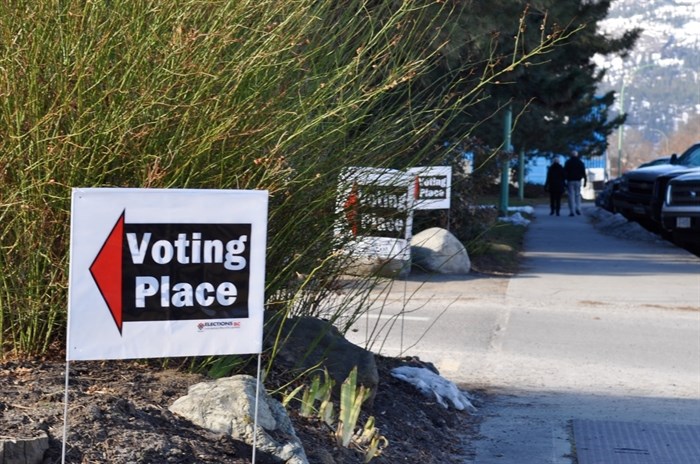
(JOHN MCDONALD / iNFOnews.ca)
April 23, 2024 - 3:33 PM
A survey shows the BC NDP winning the 2024 provincial election while the BC Conservatives sit in a comfortable second place as BC United and the BC Greens trail behind.
Research Co. conducted a survey polling voter intention across the province showing that, if the election were held today, the BC NDP would win 45% of the votes, the BC Conservatives 27%, BC United 15% and the BC Green Party 11%, with 1% supporting independent candidates, according to the results of a Research Co. poll released today, April 23.
The BC NDP is the most popular party in all areas of the province and within all age groups.
On Vancouver Island, the BC NDP holds 56% of voter support. The support decreases to 47% in Metro Vancouver and, in the Fraser Valley, they hold 37%. The BC Conservatives are just behind at 36% and in Southern BC, 35% of voters would vote BC NDP and 32% Conservatives, while in Northern BC 38% intend to vote for the BC NDP and 33% for the BC Conservatives.
While the BC NDP remains the most popular party in all age groups, the BC Conservatives' most supportive age group is voters aged 18 to 34 with 34% support. This rate drops to 29% among voters aged 35 to 54 and 22% for those 55 and older.
Overall, British Columbians mostly believe David Eby to be a good leader for the province with 51% support from voters. Sonia Furstenau of the BC Green Party is the second most supported leader at 37%, followed by BC United's Kevin Falcon at 36% and John Rustad of the BC Conservatives at 35%.
Regarding the issues voters want to see addressed, the most important one is housing, homelessness and poverty with 37% of BC voters saying this should be politicians' priority. Healthcare comes second at 21%, then the economy and jobs at 18%, the environment at 6% and crime and public safety at 5%.
“A third of British Columbians aged 55 and over (34%) think healthcare is the most pressing issue right now,” Mario Canseco, president of Research Co, says. “Those aged 18-to-34 and aged 35-to-54 are primarily concerned about housing, homelessness and poverty (42% and 40% respectively).”
In terms of representation, nearly half of British Columbians, that is 48%, would like to see political parties establish quotas to see more female candidates in the election. Fewer, at 44%, want to see similar quotas installed to see more candidates that are visible minorities.
When it comes to candidates attending cultural festivals and celebrations such as Vaisakhi, 63% of BC voters believe candidates do so to gain votes, not to truly engage with people from different cultures and backgrounds.
A similar proportion, 65%, believe candidates should be mandated to attend at least one public debate in their constituency against their competing candidates. In Northern BC, this number rises to 72%.
Cancel culture also seems to make its way into politics with 51% of residents who believe a party should encourage candidates to step down in the case where they say something offensive on social media.
Residents of Southern BC are the most in favour of this at 58%, followed by 52% in Metro Vancouver, 49% in the Fraser Valley and Vancouver Island and 45% in Northern BC.
Many people fear a split vote between BC United and the BC Conservatives which could explain why nearly 40% of British Columbians would like to see a merger of the two parties before the election.
Within party supporters, 54% of BC Conservatives' voters and 53% of BC United voters would be in favour of a merger.
To attract more voters, Falcon is viewed as better suited to attract male voters to his party than Rustad at 26% to 19%, female voters at 20% to 17%, as well as, voters aged 18 to 34 at 23% to 17%.
Rustad would be the best leader compared to Falcon to attract voters aged 55 and up at 30% to 20% and voters in Northern BC at 27% to 17% to the BC Conservatives.
Falcon and Rustad are nearly tied in five other categories participants were surveyed on. In forming the government after the election: 21% for Falcon and 20% for Rustad, serving as the Official Opposition leader: 24% for Rustad and 22% for Falcon, attracting voters between the ages of 35 and 54: 24% for Rustad and 22% for Falcon, attracting voters in Southern BC: 22% for Rustad and 21% for Falcon and, finally, attracting voters in Vancouver Island: 21% for Falcon and 20% for Rustad.
The survey was conducted among 801 adults in British Columbia from April 15 to 17. The results were then weighed according to data from the Canadian census to obtain figures for age, gender, and region in British Columbia.
To view the survey's analysis along with its data tables, visit the Research Co. website here.
— This story was updated at 8:30 a.m. Thursday, Apr. 25, 2024, to correct a math error.
To contact a reporter for this story, email Gabrielle Adams or call (438) 830-1211 or email the editor. You can also submit photos, videos or news tips to the newsroom and be entered to win a monthly prize draw.
We welcome your comments and opinions on our stories but play nice. We won't censor or delete comments unless they contain off-topic statements or links, unnecessary vulgarity, false facts, spam or obviously fake profiles. If you have any concerns about what you see in comments, email the editor in the link above. SUBSCRIBE to our awesome newsletter here.
News from © iNFOnews, 2024